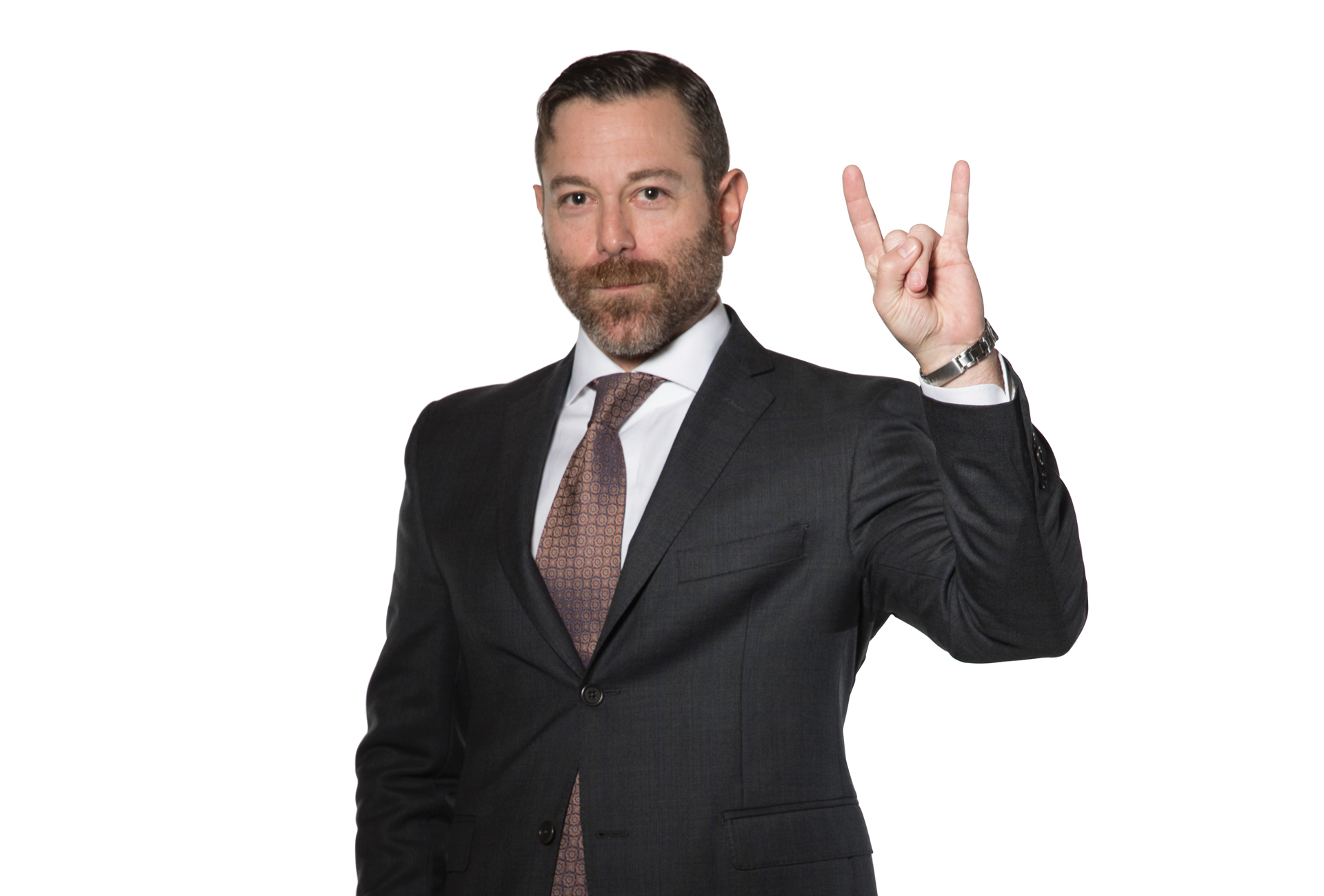The Pro Bene Meritis award is the highest honor bestowed by the College of Liberal Arts. Since 1984, the annual award has been given to alumni, faculty members and friends of the college who are committed to the liberal arts, have made outstanding contributions in professional or philanthropic pursuits or have participated in service related to the college.
Keith Sharman
Education: B.A. History Honors ’98, The University of Texas at Austin
Hometown: Plantation, Florida.
Keith Sharman is an award-winning producer for “60 Minutes.” In his 16 years at CBS News, he has won two Alfred I. duPont-Columbia Awards for excellence in broadcast journalism: the first for a 2006 investigation into corruption in the Iraqi Ministry of Defense, and the second as part of the CBS News team that covered the Newtown shootings in 2012. Sharman has received nine Emmy nominations and won his first for “60 Minutes’”coverage of the 2015 Paris terrorist attacks.
What would people be surprised to learn about you?
Most people seem surprised when they learn my family and I are immigrants. We moved to the U.S. from England in 1982 when I was not quite yet 6 years old. Maybe it’s surprising because I don’t have any trace of an English accent.
What is your fondest memory from UT?
The Normandy Scholar Program. I can’t say enough about how rewarding, challenging, fun and formative this experience was for me. The curriculum was incredibly well thought out and comprehensive. By the time the group got to France (for three weeks!), we had put in the work and could appreciate seeing the place in person more than normal student travelers coming in cold. It’s a template we use as reporters at “60 Minutes”: research, prepare, and then go to the place and meet the people to hear their stories first-hand.
How has your liberal arts education helped you become a better storyteller?
As a general assignment reporter and producer, having a broad multidisciplinary education that crosses the borders between history, philosophy, language, literature, anthropology, economics, politics, sociology, etc. has been a huge help to me. All these different subjects can be looked at as distinct and complementary ways to tell the story of humanity; and a familiarity with them as a journalist allows me to walk into a situation either in command of the facts or with at least some knowledge of the context.
What makes a good story?
Characters, by far, are the most important parts of any story. Are they compelling? Do you care about them? Do you love them? Hate them? Are they memorable? Especially when it comes to a television news story, if you don’t have strong characters, you won’t have a good story.
Which story was the hardest to tell?
In 2010, I produced a story for “60 Minutes” correspondent Anderson Cooper about the Afghan National Police and the American effort to train and equip them as part of our war effort. It was difficult for several reasons, but especially because of the security environment in Afghanistan and the constant state of war there, as well as language and cultural differences. What actually made it a hard story to tell were the exact same things that made the training mission so difficult, and I think that came through in the piece. It was called “Good Cop, Bad Cop.”
In your opinion, what is the greatest challenge facing journalism today?
It’s disconcerting and distressing that people cannot agree on true bona fide facts, especially when they are well reported by widely respected, experienced journalists. The scourge of fake news is real and threatens the functionality of our democracy and our society. One’s political persuasion and what politicians they like or do not like should have absolutely zero bearing on whether they can evaluate a piece of journalism as true.
If you could interview anyone in the world, who would it be and why?
Kim Jong Un. No one in the world is a more consequential, volatile or mysterious individual than the young North Korean leader. To produce a piece about him that included a correspondent interview for “60 Minutes” would be a fascinating journey into one of the most closed societies on Earth and no doubt one that many tens of millions of Americans and other people around the world would want to see.
